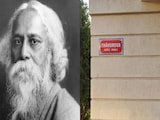- Iran launched an air strike on the US-run Al Udeid air base in Qatar following US attacks on its nuclear sites
- President Trump indicated the US would not retaliate and hoped for peace and harmony in the region
- Iran fired 14 missiles, with 13 intercepted and one released, President Trump said
US President Donald Trump signalled today that Iran's attempted air strike at the US-run Al Udeid air base in Qatar would not draw a retaliation from Washington. In a post on X a few hours after the attack, he expressed hope that Iran has "gotten it all out of their 'system' and there will, hopefully, be no further HATE".
"Perhaps Iran can now proceed to Peace and Harmony in the Region, and I will enthusiastically encourage Israel to do the same," read one of a series of posts from President Trump, who monitored the events from the Situation Room of the White House with his senior officials.
Read: Israel-Iran War LIVE Updates
The US President's post was also delivered with a jibe that the Iranian response to the US "obliteration" of its nuclear facilities was "very weak" - he said 14 missiles were fired by Tehran of which 13 were knocked down, "1 was set free because it was headed in a nonthreatening direction".
He also thanked Tehran for the advance warning of the strikes - "I want to thank Iran for giving us early notice, which made it possible for no lives to be lost, and nobody to be injured".
However, US President Donald Trump today announced that a "complete and total" ceasefire between Israel and Iran will go into force with a view to ending the conflict between the two nations.
While announcing the US attack over the weekend too, President Trump had said, "NOW IS THE TIME FOR PEACE!"
"We have completed our very successful attack on the three Nuclear sites in Iran, including Fordow, Natanz, and Esfahan. All planes are now outside of Iran air space. A full payload of BOMBS was dropped on the primary site, Fordow. All planes are safely on their way home. Congratulations to our great American Warriors. There is not another military in the World that could have done this. NOW IS THE TIME FOR PEACE! Thank you for your attention to this matter," his post had read.
Iran's armed forces, though, had threatened earlier on Monday to inflict "serious, unpredictable consequences" on the US. Its government had consulted Russian President Vladimir Putin in Moscow, seeking backing for its next steps.
After its missile attack, Iran said its action under Operation Besharat Fatah is a response to the "aggressive and shameless attack by the United States on Iran's nuclear facilities and sites".
Read: Iran Releases Video Claiming Hit On US' Al Udeid Base In Qatar
"Whoever has assaulted you, then assault him in the same way that he has assaulted you... The number of missiles used in this successful operation was equal to the number of bombs the United States used in its assault on Iran's nuclear facilities," read a statement from the Secretariat of Iran's Supreme National Security Council.
The attack
Iran had launched its attack on the US base in Qatar two days after the US offensive on Iranian nuclear enrichment sites.Late this evening, explosions rang out from across Qatar's capital.
Qatar said it had advance information from Iran about the air strikes and there was no casualty since the missiles were intercepted by its air defence system. But it condemned the attack as a clear breach of its sovereignty, airspace, and international law.
Read: Iran Attacks US Base In Qatar's Doha With Missiles In Retaliation
"We express the State of Qatar's strong condemnation of the attack on Al Udeid Air Base by the Iranian Revolutionary Guard Corps, and consider it a flagrant violation of the State of Qatar's sovereignty and airspace, as well as of international law," foreign ministry spokesman Majed Al-Ansari said in a statement.
Shortly after the attack, Qatar, along with four other nations, had shut their airspace. While the air space over Qatar is still shut, Bahrain and Kuwait are now allowing flights.
The Air Base Targetted
Qatar's Al Udeid is the largest US military base in the middle-east.
Established in 1996, it is spread over 60 acres and has space for around 100 aircraft and drones. This base can house around 10,000 troops and serves as the forward headquarters for CENTCOM (the US Central Command) and had a key role in US operations in Iraq, Syria and Afghanistan, reports said.















